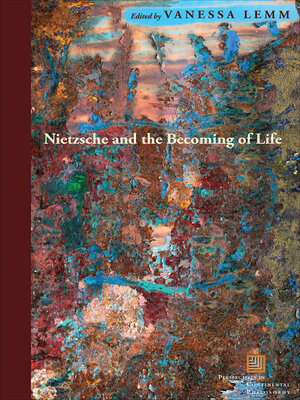
Sign up to save your library
With an OverDrive account, you can save your favorite libraries for at-a-glance information about availability. Find out more about OverDrive accounts.
Find this title in Libby, the library reading app by OverDrive.



Search for a digital library with this title
Title found at these libraries:
| Library Name | Distance |
|---|---|
| Loading... |
“This exciting collection of essays challenges existing interpretations of several key moments of Nietzsche’s philosophy.” —Paul Patton, Scientia Professor of Philosophy, University of New South Wales, Australia
Throughout his writing career, Nietzsche advocated the affirmation of earthly life as a way to counteract nihilism and asceticism. This volume takes stock of the complexities and wide-ranging perspectives that Nietzsche brings to bear on the problem of life’s becoming on Earth by engaging various interpretative paradigms reaching from existentialist to Darwinist readings of Nietzsche.
In an age in which the biological sciences claim to have unlocked the deepest secrets and codes of life, the essays in this volume propose a more skeptical view. Life is both what is closest and what is furthest from us, because life experiments through us as much as we experiment with it, because life keeps our thinking and our habits always moving, in a state of recurring nomadism. Nietzsche’s philosophy is perhaps the clearest expression of the antinomy contained in the idea of “studying” life and in the Socratic ideal of an “examined” life and remains a deep source of wisdom about living.
Throughout his writing career, Nietzsche advocated the affirmation of earthly life as a way to counteract nihilism and asceticism. This volume takes stock of the complexities and wide-ranging perspectives that Nietzsche brings to bear on the problem of life’s becoming on Earth by engaging various interpretative paradigms reaching from existentialist to Darwinist readings of Nietzsche.
In an age in which the biological sciences claim to have unlocked the deepest secrets and codes of life, the essays in this volume propose a more skeptical view. Life is both what is closest and what is furthest from us, because life experiments through us as much as we experiment with it, because life keeps our thinking and our habits always moving, in a state of recurring nomadism. Nietzsche’s philosophy is perhaps the clearest expression of the antinomy contained in the idea of “studying” life and in the Socratic ideal of an “examined” life and remains a deep source of wisdom about living.







